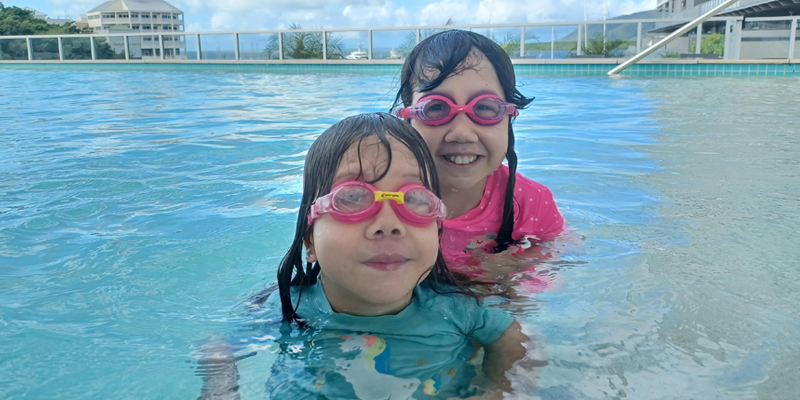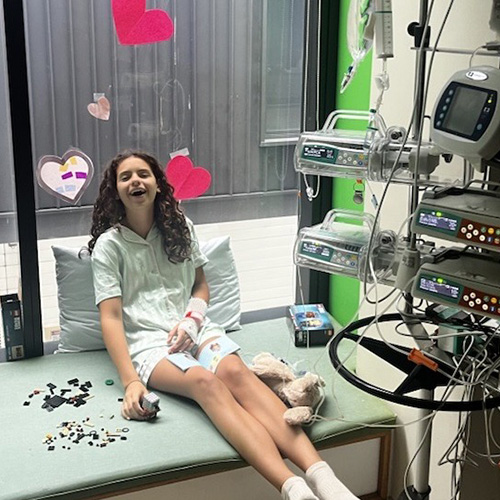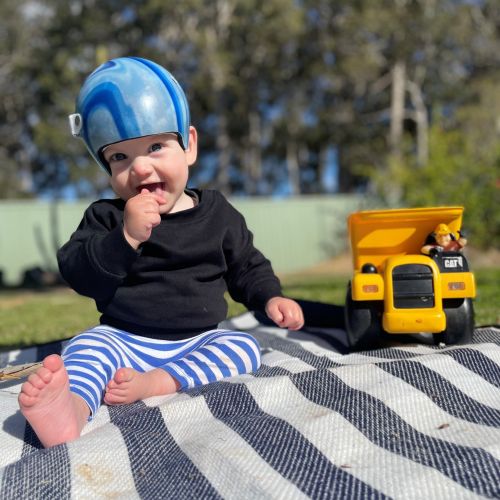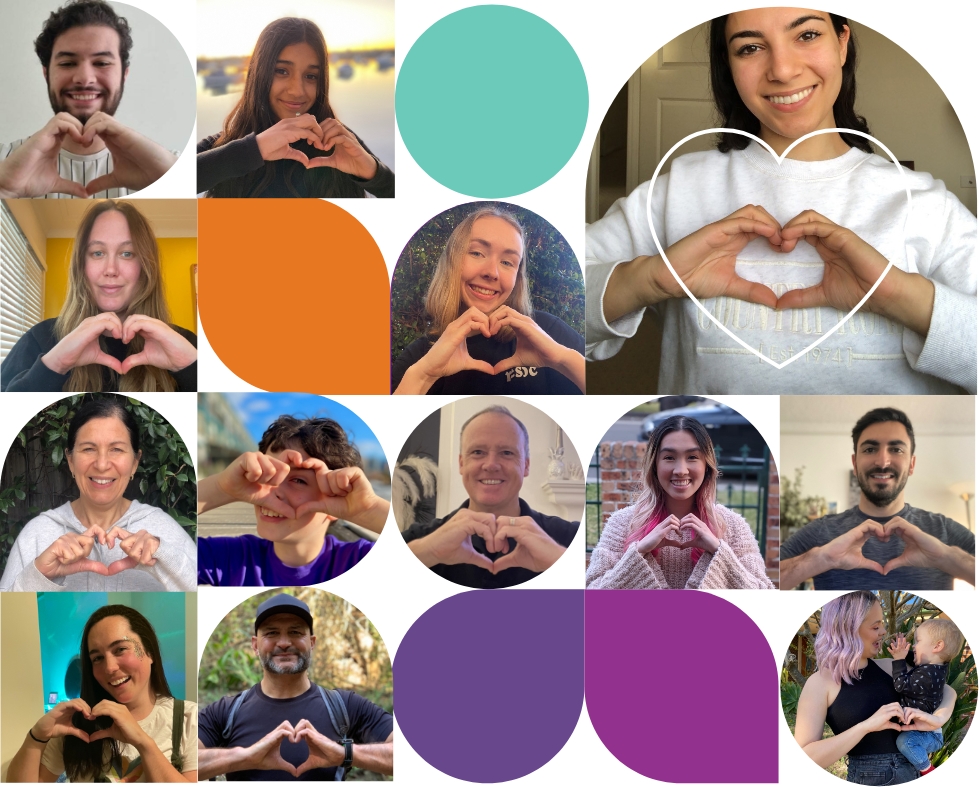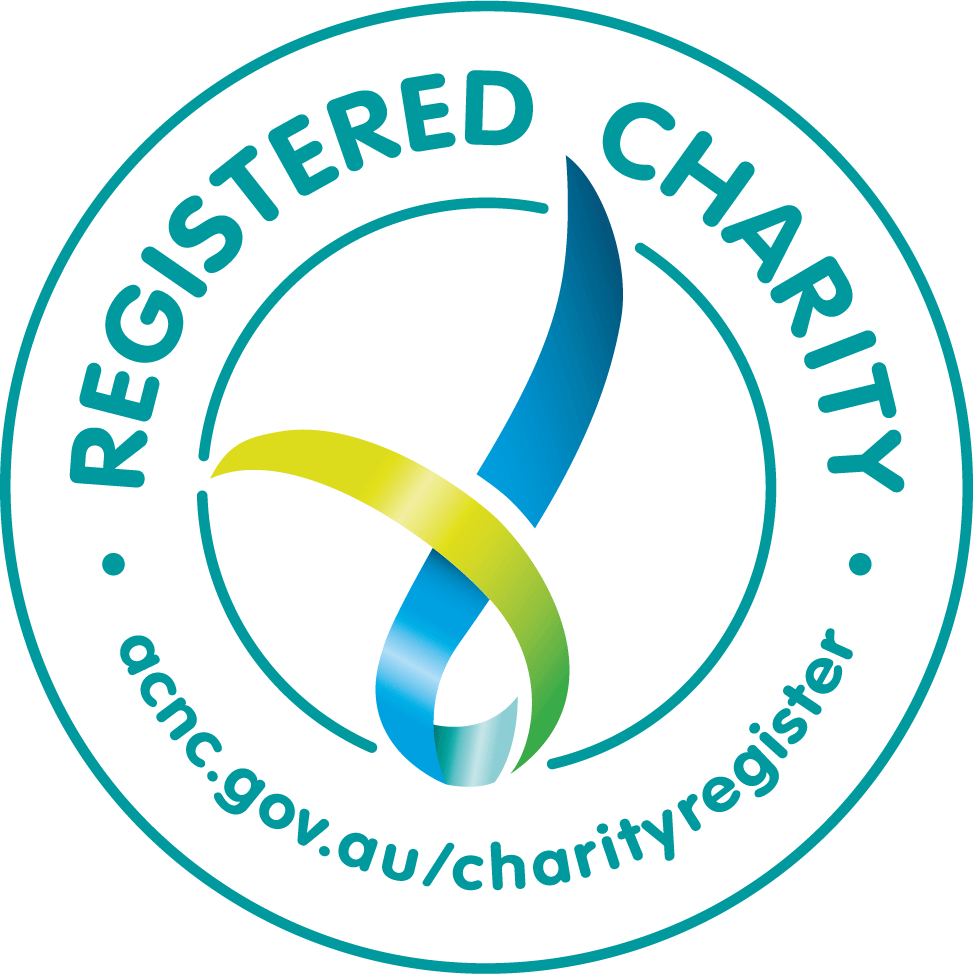When Nicole and Bernard were living in Hong Kong and pregnant with their second child, Maddy, a 17-week scan showed she had unusually short arms and legs.
More tests confirmed that Maddy had something known as skeletal dysplasia - abnormalities of the skeletal system. For any parent, hearing this news was completely life-altering, as there was a chance that their unborn daughter would have a condition that wouldn’t be compatible with life.
Fortunately, Maddy survived. She was diagnosed with diastrophic dysplasia, a rare and non-lethal form of dwarfism. Three years later, her sister Briella, was born with the same condition. These days, the family, also including big sister Lana, 13 and dog Mushu, live in Sydney. Despite frequent doctors’ appointments and more time in hospital than they’d like, Nicole says Maddy and Briella are typical, playful children.
“Like any other family, we deal with stubbornness, tantrums and sibling rivalry,” Nicole says.
“Maddy is a bit of a joker, loves sport at school and is exuberant. Briella’s a lot more serious and loves dinosaurs and reading.”
One debilitating challenge Maddy and Briella have faced due to their dwarfism is a spinal deformity called kyphoscoliosis. Their spines were curving sideways and bending forwards. If left untreated, this could eventually have crushed their lungs. So, in 2018, both girls were admitted to The Children's Hospital at Westmead, where they spent more than six months undergoing a life-changing but potentially risky procedure.
“The hospital was amazing at supporting Maddy and Briella,” says Nicole. “They felt like they were little celebrities. Everybody loved them. Everybody was on hand to help them.”
The first stage involved putting the girls in halo gravity tractions to help straighten their twisted spines. Maddy explained how the pair would get fitted with their metal halos - "like what an angel wears" - and going through it together meant they didn’t feel scared. They share an unbreakable bond.
The procedure was not without risk. The surgeon had to attach a lightweight metal ring to each of the girls’ skulls with small pins, and then gradually stretched their spines in the months ahead.
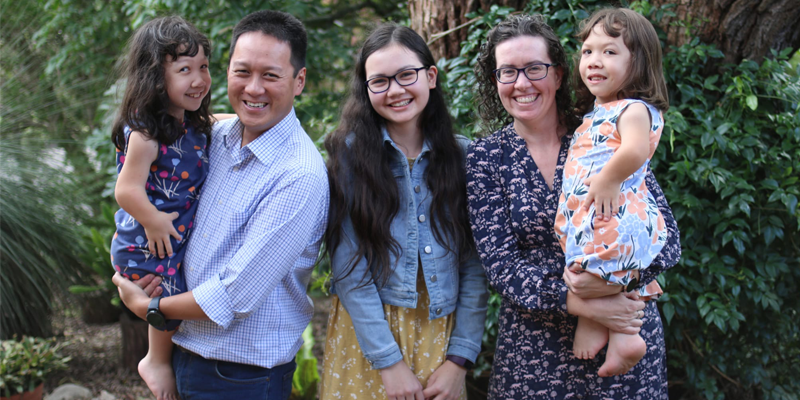
“You are moving vertebrae around,” says Nicole. “If vertebrae move around in the wrong way, you could give somebody a spinal cord injury, in a worse-case scenario.”
But thanks to kind people like you, the girls could get the safest, healthiest outcome. It’s the community’s support through vital funding that has enabled the Kids Research EPIC Lab team to use 3D technology to improve the quality of care of children. They created 3D models of Maddy and Briella’s skulls to guide safe pin placement for their halo tractions.
“The areas of the skull that were a little weaker could be identified and they could avoid those areas with pins,” explains Nicole.
The sisters spent six months in hospital, never taking their halo tractions off, even while sleeping. Afterwards, they each endured an eight-hour marathon spinal fusion surgery to stop the curve in their spines returning. 3D modelling was also used to identify the safest place to guide the drill bits into the vertebrae, making the surgery a lot safer.
Today, the girls are back to their fun, happy lives. Nicole is so grateful to the 3D technology donors who support the Kids Research EPIC Lab and made the care her girls received possible. Thanks to this generosity, their delicate spines were corrected with much less risk than what was possible before, bringing lifelong benefits.
“I want the girls to have the opportunity to have a career, or go to university, or get married - all the life opportunities any other child will have. What happens for them now will determine what kind of futures are open to them,” Nicole says.
“If Maddy and Briella had not had access to this treatment, their spines would have deteriorated, limiting the quality and even the length of their lives. To access these safe, innovative interventions has really given them a future.”
